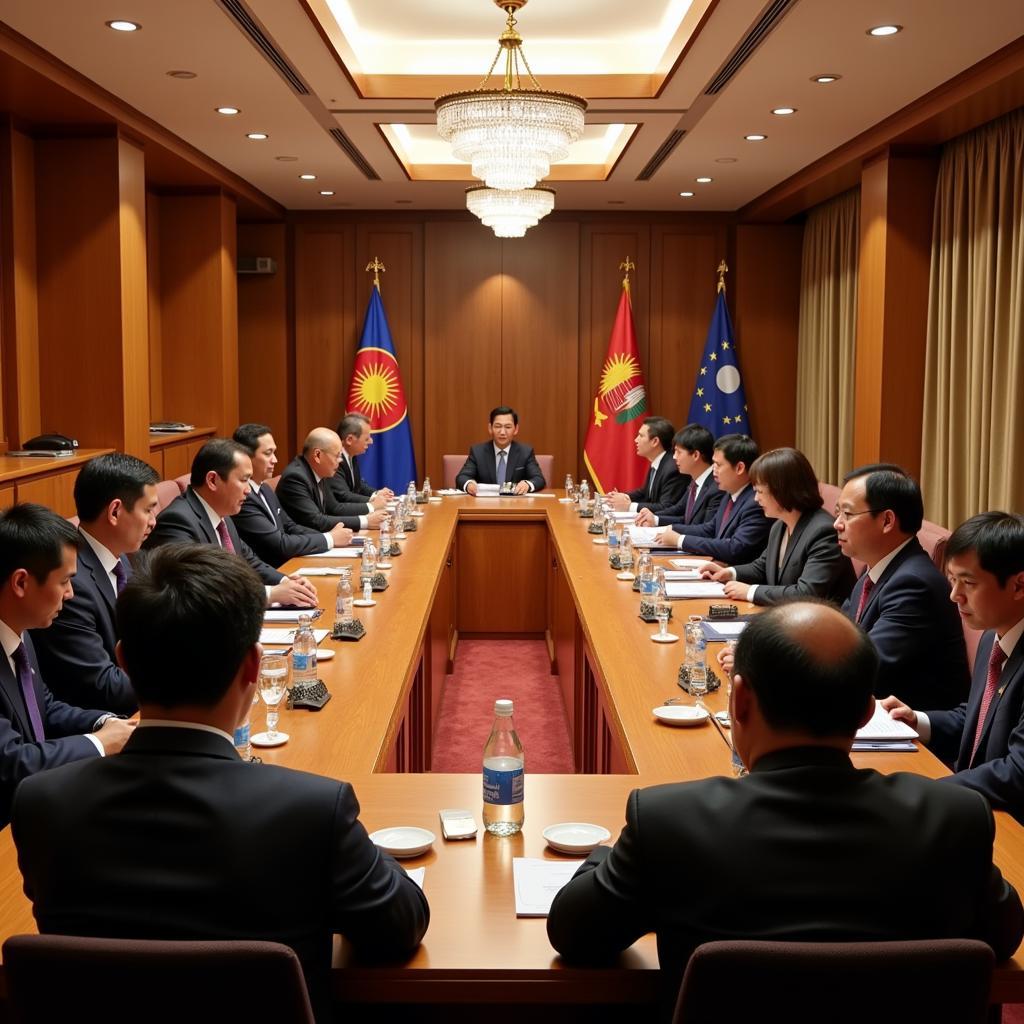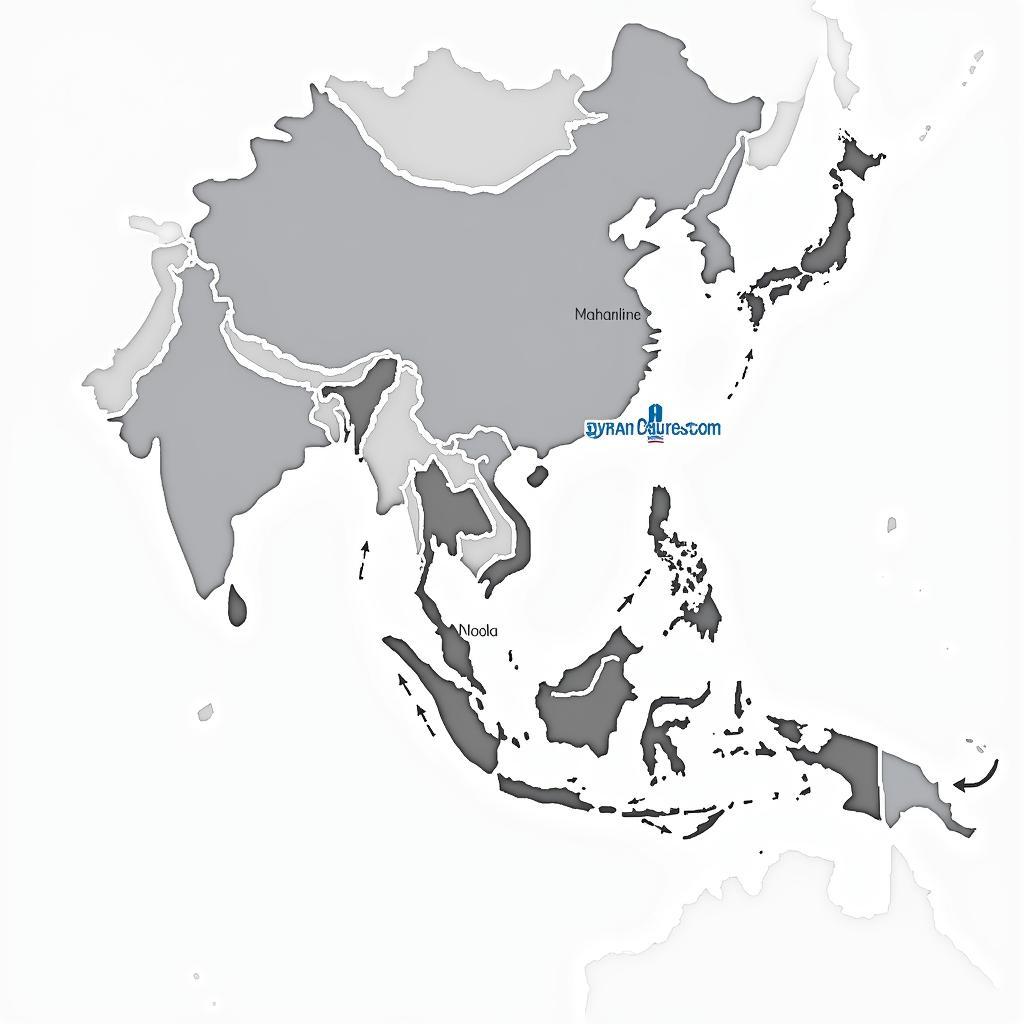The term “Asean Caucus Members” might seem like a mouthful, but it represents a fascinating facet of Southeast Asian diplomacy and regional cooperation. This article delves into the concept, exploring its significance within the broader context of ASEAN and its impact on regional dynamics.
 ASEAN Caucus Meeting
ASEAN Caucus Meeting
Deciphering the Term: What Does “ASEAN Caucus Members” Mean?
In essence, “ASEAN caucus members” refers to the collective body of representatives from the ten member states of the Association of Southeast Asian Nations (ASEAN) who convene within various international forums. These forums can range from multilateral organizations like the United Nations to specialized agencies focusing on specific areas such as trade or security.
These caucuses serve as platforms for ASEAN member states to coordinate their positions, strategize joint approaches, and present a united front on issues of common interest. This unity is crucial in amplifying ASEAN’s voice and influence on the global stage.
 ASEAN Caucus Influence
ASEAN Caucus Influence
The Rationale Behind ASEAN Caucuses: Why Are They Important?
The formation and operation of ASEAN caucuses stem from the understanding that by working together, member states can achieve more than they ever could individually. This principle of collective action underpins ASEAN’s core principles and is evident in the organization’s commitment to consensus-based decision-making.
Here’s why ASEAN caucuses are crucial:
- Amplified Voice on Global Issues: In a world of power dynamics, a unified ASEAN carries significantly more weight than individual member states acting alone. Caucuses provide the platform for this unity.
- Effective Negotiation and Lobbying: Whether it’s trade deals or climate change agreements, a coordinated approach through caucuses strengthens ASEAN’s bargaining power.
- Promoting Regional Interests: From security concerns to economic cooperation, caucuses allow ASEAN to champion common interests and advocate for solutions that benefit the region as a whole.
ASEAN Caucuses in Action: Real-World Examples
The impact of ASEAN caucuses can be witnessed across various domains. For instance, within the United Nations, ASEAN operates as a cohesive bloc, advocating for issues such as sustainable development, peacebuilding, and the rights of migrant workers.
Furthermore, ASEAN caucuses play a vital role in shaping the agenda of regional forums such as the ASEAN Regional Forum (ARF), which focuses on security dialogue and cooperation. This ensures that ASEAN’s perspectives and priorities are central to discussions on regional stability.
 ASEAN Caucus Impact
ASEAN Caucus Impact
Challenges and Opportunities for ASEAN Caucuses
While caucuses are undoubtedly valuable, they also face challenges:
- Maintaining Consensus: With diverse national interests, achieving consensus among ten member states can be complex and time-consuming.
- Internal Dynamics: Disagreements or differing priorities among member states can sometimes hinder the effectiveness of caucuses.
- External Pressures: Navigating the influence of major powers and external actors requires delicate diplomacy and strategic maneuvering.
However, these challenges also present opportunities for ASEAN to strengthen its internal mechanisms and enhance its external engagement.
Conclusion: The Future of ASEAN Caucus Members
As ASEAN continues to evolve as a regional bloc, the role of its caucus members will only become more critical. By strengthening internal coordination, addressing emerging challenges, and embracing opportunities for greater collaboration, ASEAN can leverage the power of its caucuses to further its goals of regional integration, sustainable development, and a more prominent role on the global stage.
FAQs about ASEAN Caucus Members
1. What is the primary function of ASEAN caucus meetings?
ASEAN caucus meetings primarily serve as platforms for member states to coordinate their stances, formulate unified strategies, and present a cohesive front on shared concerns within various international forums.
2. Can you provide an example of a successful outcome achieved through an ASEAN caucus?
A notable example is ASEAN’s collective advocacy within the UN for the rights of migrant workers, leading to the adoption of resolutions and conventions that safeguard their welfare.
3. What are some of the key challenges faced by ASEAN caucuses?
Reaching consensus among ten diverse nations, managing internal dynamics, and navigating external pressures from major powers pose significant challenges to effective caucus operations.
4. How do ASEAN caucuses contribute to the organization’s overall goals?
By promoting unity and coordinated action, caucuses empower ASEAN to effectively advocate for its interests, amplify its voice on global issues, and strengthen its position in international affairs.
5. What is the significance of ASEAN caucuses in the context of regional security?
ASEAN caucuses play a crucial role in security dialogue and cooperation, particularly within platforms like the ARF, by ensuring that ASEAN’s perspectives and concerns are central to discussions on regional stability.
Need Assistance? Contact Us
For any inquiries or assistance regarding ASEAN, please don’t hesitate to contact us:
Phone Number: 0369020373
Email: [email protected]
Address: Thon Ngoc Lien, Hiep Hoa, Bac Giang, Vietnam.
Our dedicated customer service team is available 24/7 to assist you. Explore more about ASEAN 10+3 and other relevant topics on our website.

